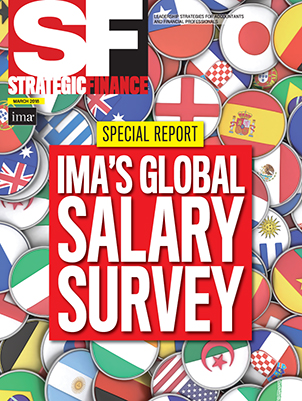Thoreau's inspirational words—It is never too late to give up your prejudices—are in great need today. The world in which we live and work today commonly contains bias, racism, and discrimination because of fears over people being different, of not being “like us.” People are discounted, excluded, and marginalized because of their differences, not embraced or valued for them. Tangible differences—such as ethnicity—and the intangible—such as diversity of thought—between us have led to oppression, terrorism, war, and even death. The wave of political populism sweeping across countries and putting new leaders in office has served to drive a wedge between our differences and widen the divide, not close it. Tensions are running near the tipping point. Xenophobia and nationalism appear to be on the rise. Almost daily we’re faced with new divisiveness and antagonism from saber-rattling world leaders, whether it’s comparing the size of their nuclear buttons, vowing to exit long-held economic and political unions, or even eliminating human rights and protections for those who are different.
A bleak picture indeed. But all isn’t lost.
We have a choice. As Thoreau astutely observed, there’s no time like the present to change our thinking and become more accepting and inclusive of what is a diverse, changing world. We can make a difference!
D&I COMMITTEE
In July 2017, I became Chair of the Diversity and Inclusion (D&I) Committee, now a standing advisory committee of IMA® (Institute of Management Accountants), with an eagerness to help integrate diversity and inclusion further into the rich fabric of the IMA community. I saw this as a way to learn more about the value and importance of strong D&I practices, what it means to our members, and what it means to me.
The D&I Committee includes women and men from a variety of experiences, backgrounds, geographies, jobs, and perspectives, which illustrates a key point: It’s relatively easy for each of us to see the tangible, visible differences in each of us, such as race, gender, and age; it’s altogether more difficult to determine the intangible, invisible qualities in each of us, such as diversity of thought/opinion, sexual orientation, or even something like dyslexia or attention deficit disorder. We often make assumptions about people without knowing all the facts, which leads to our conscious or even unconscious bias. Such bias can lead to embarrassment and offense on one extreme and to conflict, discrimination, or worse on the other.
UNCONSCIOUS BIAS
Examples of bias that people say and think could include things like “Asian people are better at math and science,” “gay men are more creative,” or “people on welfare are lazy.” I have been on the unfortunate receiving end of several types of unconscious bias throughout my personal life and career, so I’m hyperaware when it occurs. Sometimes this bias may not be said explicitly by someone—it could be part of their thinking and can manifest in actions, such as someone with an unconscious bias against women who only hires men for the positions in his organization. It’s very easy to see how these actions can be discriminatory, even illegal in some cases. But with the power of what we think, say, and do, we can eliminate bias and make the workplace more diverse, welcoming, and inclusive wherein everyone is valued for his or her uniqueness, not offended, punished, or shunned. As I have learned more recently, this inclusive environment can lead to great outcomes.
One of the amazing things I’ve learned since joining the D&I Committee is that D&I can have a profound, positive impact on business. Tony Byers, former director of Global Diversity and Inclusion at Starbucks, spoke at the 2017 IMA Annual Conference about a multiplier effect that inclusion has on diversity at an organization and that it leads to both innovation and growth. D&I priorities aren’t just good for us as colleagues in the workplace—they’re good for business as well! Makes sense. Long a proponent for innovation, I was doubly thrilled to see that good D&I practices compelled professionals to take a more innovative approach to the business and achieve higher growth as a result.
POSITIVE IMPACT
New products, processes, and markets grow out of a diverse, inclusive work environment where the intangible nature of thought mixes with tangible solutions. People are happy and eager to contribute when they know their perspectives, experiences, and ideas are welcomed and considered. Such inclusiveness helps business solve its problems and overcome obstacles. Tim Berners-Lee of the World Wide Web Consortium, himself a pioneer and innovator, agrees with Byers as evidenced by his thinking on the subject: “We need diversity of thought in the world to face the new challenges.”
A LOOK AHEAD
There will be many new challenges, especially as major factors of change evolve in the next 20 years. Demographics, technology, the economy, politics, and more are driving a fundamental shift in the global market. Professions like accounting are evolving quickly alongside these shifts. Think about your role in business and society. The accounting community of tomorrow will surely be very different from the one today. It will be more diverse. It will look and think differently. And that’s okay! Think about what you can do now to embrace D&I in order to drive innovation and growth today…and in the future.
Thoreau understood that we as humans have it within our power to change ourselves and eliminate our prejudices. As an IMA member with many invisible, intangible factors that make me unique, I certainly hope they will be embraced and welcomed. I, for one, will do the same for you.

March 2018



